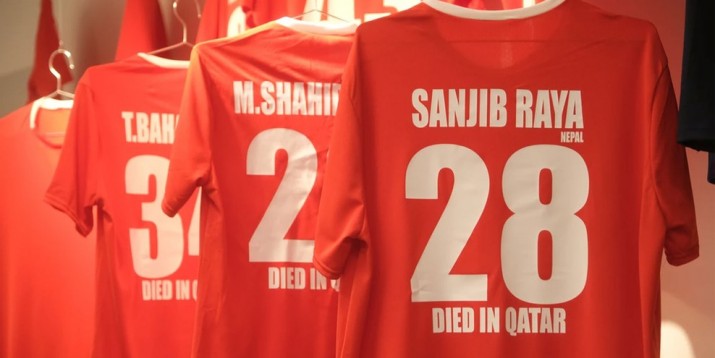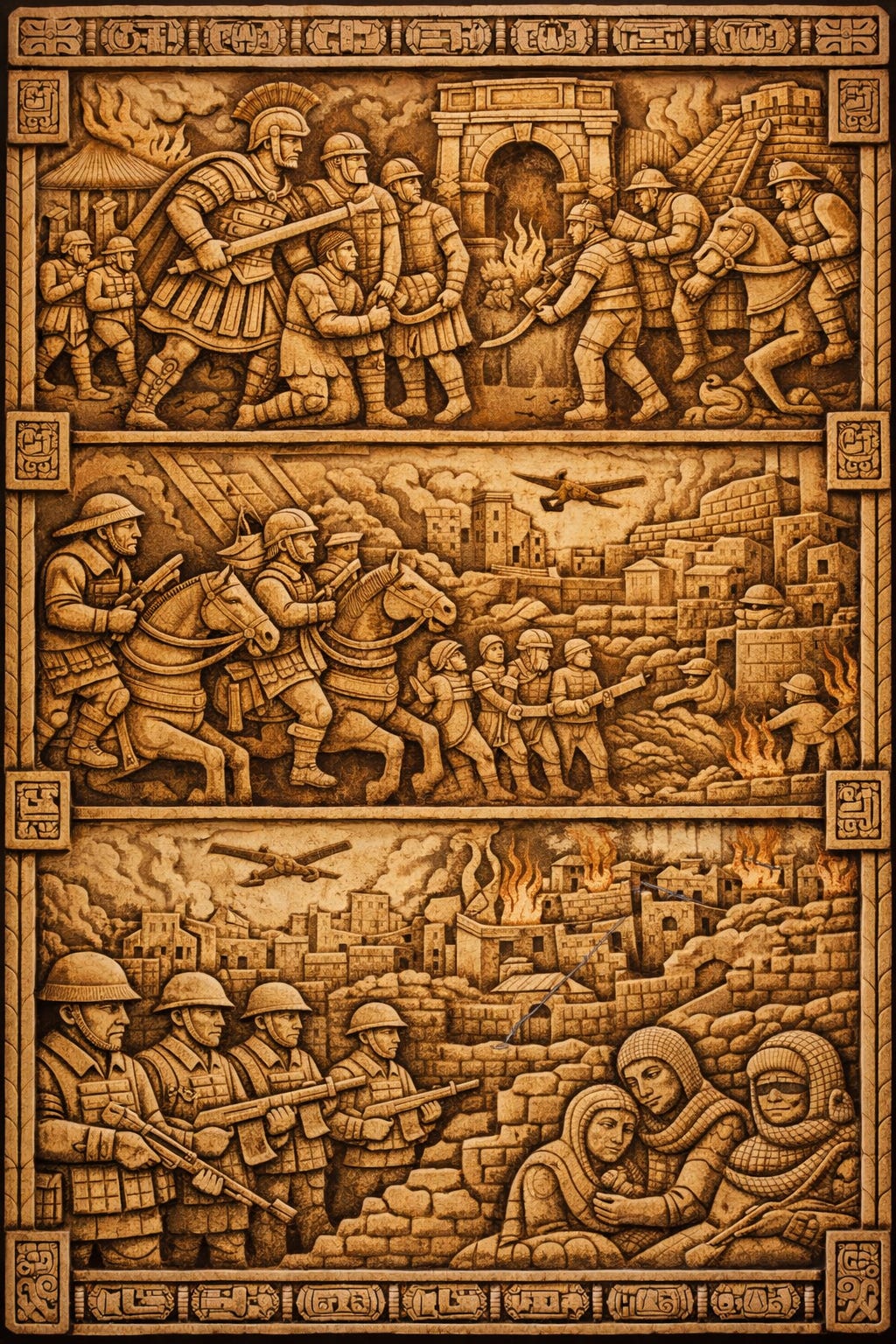Sergio Ferrari, 1/10/2022
Translated by Tlaxcala
Goals don’t always speak
louder than words
Footballers defend their union rights
The opening whistle of a new World Cup is approaching. With our sights set on Qatar, the pressure on "planet soccer", both on and off the field, is mounting steadily. The passion of the multitudes is now dignified by a worldwide trade union agreement. Meanwhile, the international civil society demands remembrance and reparation for the disrespect of human rights in the pre-World Cup period.
Unhealthy
work: human and labour rights violated in Qatar. Photo Amnesty International
In the last week of September, the World Leagues Forum (WLF), which represents 44 national professional football institutions made up of some 1,100 clubs, and the International Federation of Professional Footballers (FIFPRO), which brings together 66 unions with 60,000 players, signed in Geneva, Switzerland, the first Global Labor Agreement (GLA). It recognizes the importance of social dialogue to improve the rights of professional soccer players.
As reported on the FIFPRO website, this “revolutionary” agreement will allow leagues and unions in Africa, Latin America, Asia, Europe and Oceania to address critical international issues that directly affect labor relations between clubs and their players.
FIFPRO and WLF will also collaborate to develop and promote collective bargaining taking greater responsibility in the process of professionalizing the sport at the national level.
As next steps, both counterparts will appoint their representatives to integrate the Executive Council that will manage the implementation of the agreement. The Council will meet before the end of 2022 to discuss, among other matters, employment priorities, the schedule of matches and competitions and the workload of the players.
Future negotiations will include issues such as labor standards, injury management, and measures to combat discrimination and racism on and off the pitch, as well as their expressions on social media.

Soccer shirts bearing the
names of some of the thousands of migrant workers killed on World Cup
construction sites in Qatar.
Guy Ryder, director of the International Labor Organization (ILO), celebrated this new international agreement, which represents “a step forward in the labor relations of soccer players”. And he stressed that football can inspire and unite people of all nationalities and walks of life, regardless of gender and ethnicity.
The Global Labor Agreement conforms to the fundamental principles and rights at work established by the ILO in the 1998 Declaration of Fundamental Principles and Rights. It takes up the Points of Consensus of the Global Dialogue Forum on Decent Work in the World of Sport (2020) and includes a specific reference to the Convention on freedom of association and the protection of the right to organize of 1948 and collective bargaining of 1949.
The agreement will offer a platform to discuss the health and safety protection standards for athletes, as well as the necessary commitment to improve the representation and participation of the national leagues, the clubs that compose them and the unions of the sector. In addition, it is committed to promoting greater representation and recognition of women’s football.

Group photo of the signatories of the Global Labor Agreement that will govern social relations in the soccer world
Human rights in question
While the Global Labor Agreement opens a window of hope for sports players, international civil society intensifies criticism of Qatar.
In September, well-known NGO spokespersons continued to demand compensation from the International Federation of Association Football (FIFA) for migrant workers whose human rights were violated during preparations for the 2022 World Cup.
Already in May 2021, the British newspaper The Guardian put the number of workers who had died during the construction of the stadiums at 6,500, the vast majority of them immigrants from India, Bangladesh, Nepal, Sri Lanka and Pakistan. This information was mainly based on data provided by these countries.
In its 2021/2022 Report, Amnesty International includes a chapter on Qatar, with references to temperatures of up to 50ºC, endless working hours, few job security measures, practically non-existent rest days and threats of deportation from the country to those who do not accept the unconscionable prevailing working conditions. In addition, the real impossibility for workers to change companies, the non-fulfilment of agreed benefits, and the unhealthy housing conditions.
“That is the breeding ground that explains something that may seem incredible: thousands of migrant workers have lost their lives in the different buildings in Qatar since FIFA designated it as the venue for the 2022 World Cup in 2010.” [Los muertos del Mundial de Qatar 2022, by Alberto Senante, 18/5/2022]
Qatar and FIFA must compensate the victims
The new offensive by international NGOs against FIFA is based on a survey on compensation for labor victims that Amnesty International carried out in various countries through the international pollster YouGov, based in Great Britain. 17,477 persons were interviewed in Germany, Argentina, Belgium, Denmark, Spain, the United States, Finland, France, Kenya, Morocco, Mexico, Norway, the Netherlands and the United Kingdom, and three out of four supported such reparations.


